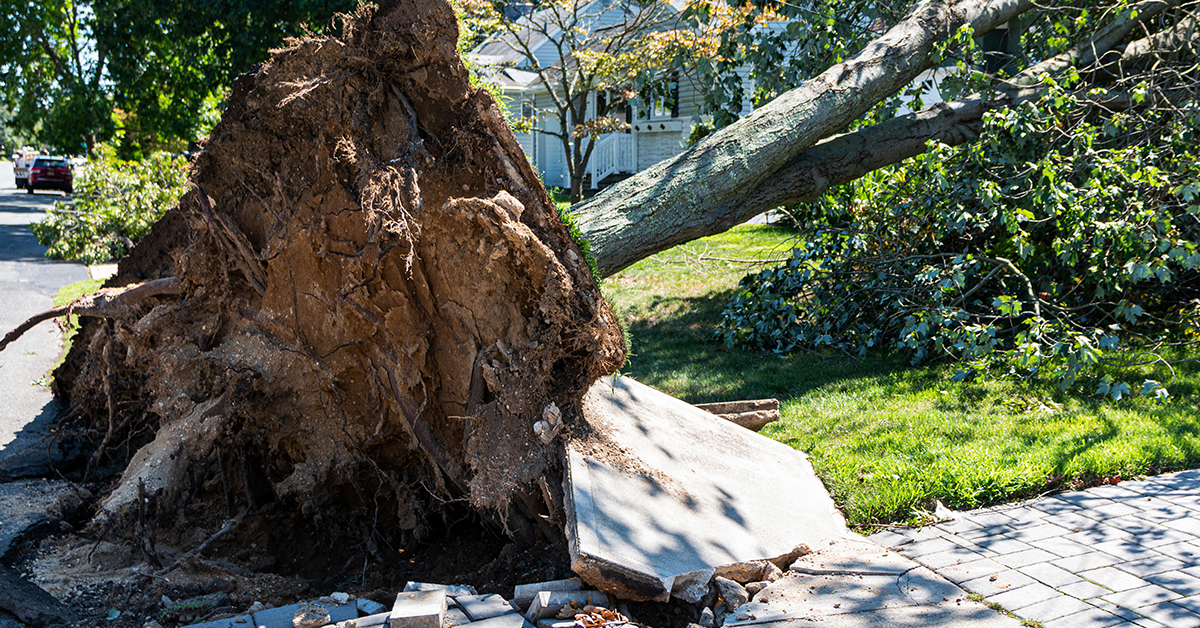 Q: I live in a gated homeowners’ association. Roots from a tree planted on the common area has damaged my driveway. Who is responsible for the repair? (J.K., via e-mail)
Q: I live in a gated homeowners’ association. Roots from a tree planted on the common area has damaged my driveway. Who is responsible for the repair? (J.K., via e-mail)
A:Probably you.
There are two theories which have been brought before Florida courts in an attempt to hold adjacent property owners liable for damage caused by tree roots or limbs encroaching past the property line, nuisance and negligence.
In a 1984 decision, a Florida appeals court noted that while there was substantial authority to the contrary in other jurisdictions, “the undoubted right of the land owner himself to cut off intruding roots or branches at the property line,” precludes a negligence claim.
As for nuisance, the majority rule in this country, which is followed in Florida, is that the owner of land is not liable to persons outside the land for a nuisance resulting from trees and natural vegetation growing on the land because the neighboring owner has the right to trim back roots and branches to the property line.
However, your association does have a duty to maintain common areas, and it could be argued that if this duty is not met, you could make a claim. However, this argument has not been tested in the courts and is contrary to fairly well-established precedent outside of the association setting.
Q: My homeowners’ association requires that children must be at least 16 years old to use any of the community’s amenities without an adult. I questioned this restriction and our community manager stated that the age requirement is not in the bylaws or covenants, but in the “new homeowner packet.” I never received a new homeowner packet. Can the association make this kind of a rule? My son is 15 and uses the pool and the gym regularly to exercise and I don’t think I need to be there with him when he does this. (P.S., via e-mail)
A: Restrictions aimed at families with children present difficult issues for associations. The federal fair housing law prohibits discrimination regarding the use of privileges, services or facilities associated with a dwelling because “familial status.” On the other hand, the courts have recognized that rules based on legitimate safety concerns are valid. No one would argue that an association should let a two-year-old toddler wander around a swimming pool area, unattended by an adult.
In a 2003 decision coming from a federal trial court in California, the court held that blanket rules requiring adult supervision for children under 18 years old using recreational facilities in a community were discriminatory. The court also found that the prohibitions based on children of less than a designated age was not the least restrictive means by which the community could protect the health and safety of children and residents, safety would be better served with a proficiency requirement.
There are other cases that have upheld restrictions and the law remains unsettled with no bright line as to what a reasonable age cut-off is or whether there are other means of ensuring safety in the community. You should ask your association to review your concerns with the association’s legal counsel and review whether the association should reconsider its policy.
I would also point out that as of July 1, 2018, Section 720.306(1)(e) of the Florida Homeowners’ Association Act requires that amendments made to HOA rules be “recorded in the public records of the county in which the community is located.” If the rule was adopted after that date, it should be recorded.